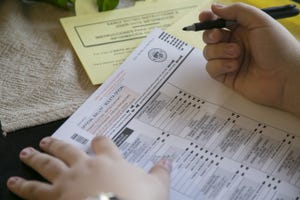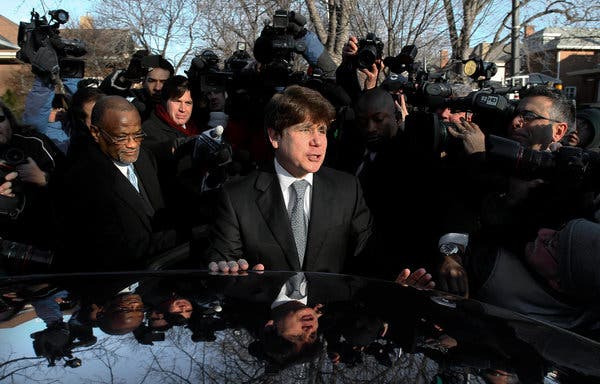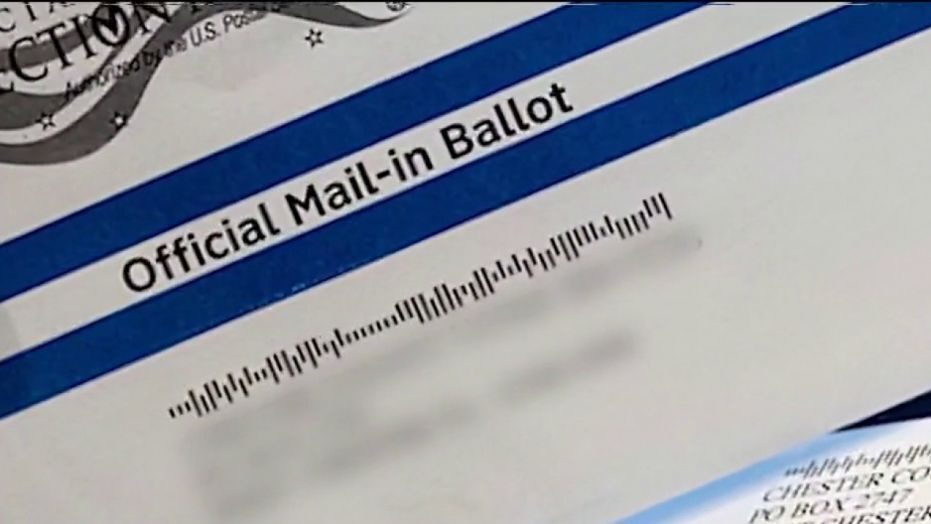
A federal judge on Monday granted a last-minute extension of the deadline for Arizona residents to register to vote
With just hours remaining for the state’s residents to sign up to cast a ballot in the November election, U.S. District Judge Steven P. Logan extended Arizona’s voter registration deadline from Monday night until 5 p.m. on Oct. 23.
Logan cited the impact of the COVID-19 pandemic on efforts to register voters face-to-face — work stymied for some groups and campaigns by public health concerns.
The judge said that Arizona has made it easy to register in various ways, such as online, but noted that many in the state lack internet access.
“Registering to vote has never been easier for some, though others are not so fortunate. Ballot access is an extremely important right, and it has been restricted during this unprecedented time,” wrote Logan, who was appointed by President Barack Obama.
The decision comes after a lawsuit filed by two advocacy groups less than a week earlier challenging Arizona’s Oct. 5 deadline.
But that may not be the last word. Lawyers representing the Republican National Committee filed a late-night appeal hours later, promising a down-to-the-wire legal battle.
Groups argued for extension
Mi Familia Vota and Arizona Coalition for Change argued that public health measures instituted during the pandemic hindered their ability to register voters ahead of the election.
Both groups mostly register voters face-to-face by knocking on doors and seeking out high-traffic public places, like schools and community centers.
“High-propensity voters are ready to go,” said Eduardo Sainz, state director for Mi Familia Vota.
But he argued face-to-face outreach is needed to reach voters who otherwise might not participate in the democratic process, or new voters who are eligible to vote for the first time.
“We need to ensure we can continue to expand access to democracy for all voters,” he said.
This work slowed significantly under executive orders by Gov. Doug Ducey prohibiting large gatherings and encouraging social distancing, the groups said in their lawsuit.
While the groups sought to reach potential voters by phone, online and with drive-thru voter registration events, the number of people they registered has fallen far short of targets, both groups said.
The groups argued Arizona could accommodate a later deadline, writing that voters can already update their addresses and cast a ballot on the same day.
They proposed moving the voter registration deadline to Oct. 27.
But Secretary of State Katie Hobbs, a Democrat, said it is not so simple and opposed moving the deadline, warning it could cause a host of problems as early voting begins Wednesday.
County election officials would have to process early ballots and new registrations at the same time, lawyers for Hobbs said in their response to the lawsuit.
And voter registration forms ask if a voter wants to join the permanent early voting list and receive ballots in the mail — requests that must be submitted by Oct. 23. Allowing voters to register after or near that deadline means some voters may not receive a ballot in time to cast it, the Secretary of State’s Office warned.
Moving the voter registration deadline at the last minute, the office cautioned, “would add additional (as of yet undetermined) steps in a delicate framework that has been refined to accurately process millions of votes in a safe, secure, and efficient manner.”
“We would have to discuss things with the counties, we would have to promulgate entirely new procedures,” Kara Karlson, a lawyer representing the secretary, told the judge in a hearing Monday afternoon.
Opponents: Voter registration was never prohibited
Opponents of the lawsuit also disputed the reasoning behind moving the voter registration deadline.
Kory Langhofer, a lawyer representing the Republican National Committee as it joins the case as an intervenor, argued in court Monday that groups hoping to register voters were never prohibited from doing so under the state’s recent public health measures, which have allowed for political activities from protests to political rallies.
“It was never illegal under the governor’s order to participate in First Amendment activities,” he told Logan.
But proponents of moving the voter registration deadline argued these are unprecedented times and noted that courts have changed such deadlines in the face of extraordinary events in the past, such as hurricanes.
“It’s not the first time the court has had to extend a deadline due to an unprecedented natural disaster,” argued Zoe Salzman, a lawyer representing the advocacy groups that brought the lawsuit.
Moreover, she noted many states have later deadlines.
Fifteen states — including Arizona — have a voter registration deadline 28 to 30 days before an election while 19 states allow voter registration on Election Day, according to the National Conference of State Legislatures.
Citing the deadline to request a ballot by mail, Logan moved the voter registration cutoff to 5 p.m. on Oct. 23.
While the Republican Party appealed, Hobbs said she would not pursue the case further, pointing to the election that is fast approaching.
“Providing clarity is more important than pursuing this litigation,” she said in a statement. “I urge anyone who still needs to register to vote to do so as soon as possible. Do not wait.”
Contact Andrew Oxford at andrew.oxford@arizonarepublic.com or on Twitter at @andrewboxford.

